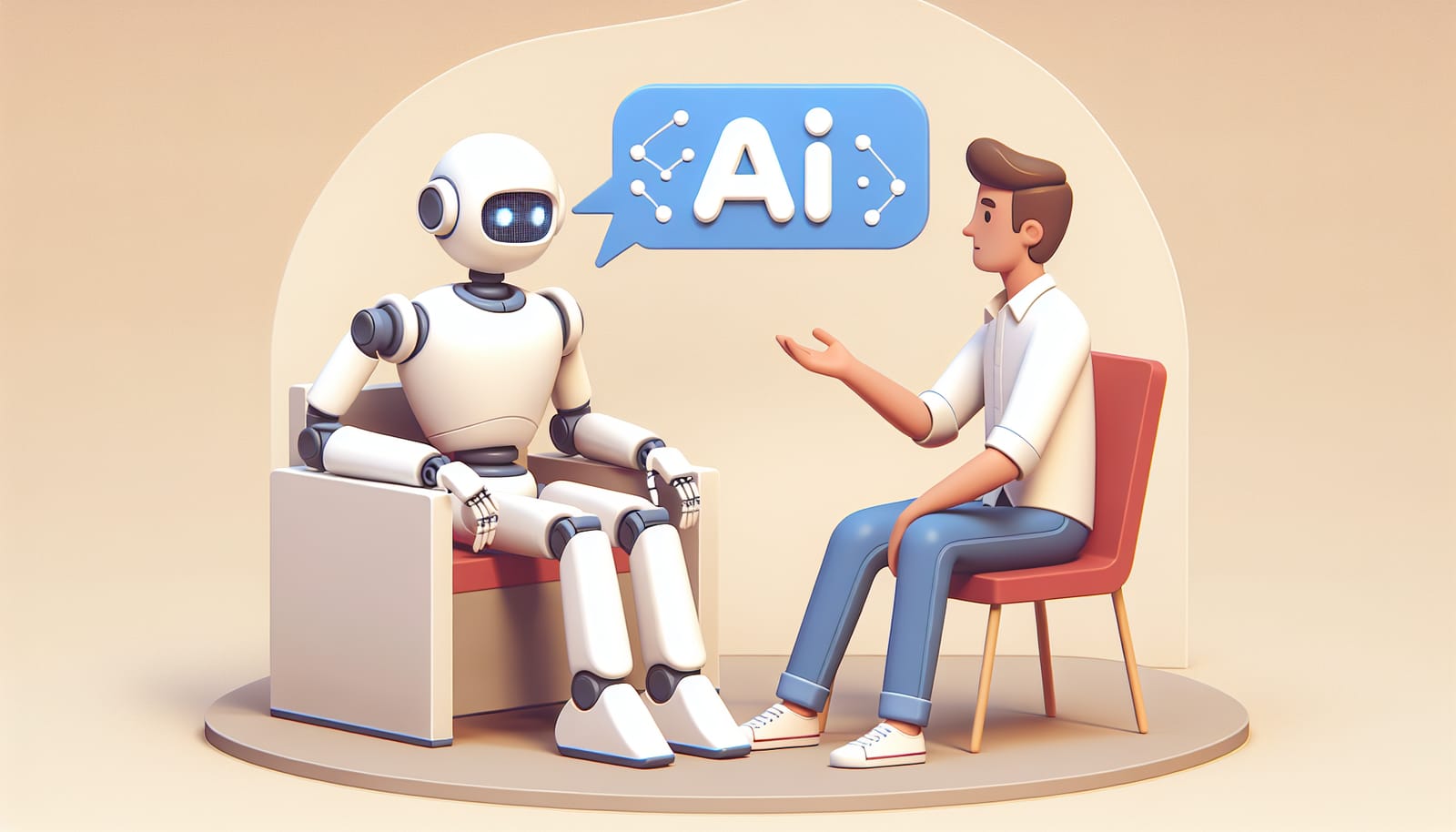Artificial Intelligence (AI) is one of the most exciting developments of our time. It’s a term that’s often thrown around in movies, news, and even in everyday conversations. But what exactly does it mean, and why should you care? In this article, we'll explore the basics of AI, why it's important for everyone to learn about it—even just a little—and how it can enrich your life.
What is AI, Anyway?
At its core, Artificial Intelligence is the simulation of human intelligence in machines. This means that computers can be programmed to think, learn, and make decisions like humans do. AI can do a variety of tasks, from recognizing your voice when you ask your phone for directions, to recommending movies based on what you’ve watched before.
AI can be divided into two main categories: Narrow AI and General AI. Narrow AI is designed to perform a specific task, like playing chess or translating languages. In contrast, General AI would be able to perform any intellectual task that a human can do—think of it as the stuff of science fiction. Right now, we’re mostly dealing with Narrow AI, which is more than capable of transforming our daily lives.
Why Learning About AI is Important
You might be wondering why you should spend time learning about AI. Here are a few compelling reasons:
AI is Everywhere: AI technology is already part of your daily life. Whether you’re using social media, shopping online, or even just browsing the internet, AI is working behind the scenes to enhance your experience. Understanding how it works can help you navigate the digital world more effectively.
Job Opportunities: As AI continues to grow, so does the job market related to it. From data analysis to machine learning engineering, there are numerous career paths opening up. Even basic knowledge of AI can give you an edge in many fields.
Informed Decisions: In a world increasingly influenced by AI, knowing a bit about how it operates can help you make better decisions—whether it's evaluating news sources, choosing technologies for your business, or even understanding the implications of AI in society.
Empowerment: Learning about AI can empower you to use it to your advantage. Whether you want to automate boring tasks, analyze data more efficiently, or simply understand the technology behind your favorite gadgets, a little knowledge can go a long way.
How AI is Changing Our Lives
AI is not just a buzzword; it has practical applications that are changing the way we live. Here are some examples:
Healthcare: AI is being used to diagnose diseases, recommend treatments, and even predict patient outcomes. For instance, algorithms can analyze medical images faster than doctors, leading to quicker diagnoses.
Transportation: Self-driving cars are a hot topic, and AI plays a crucial role in making them a reality. These vehicles use AI to navigate, interpret their surroundings, and make decisions on the road.
Entertainment: Ever wondered how Netflix knows exactly what you want to watch next? Its recommendation system uses AI to analyze your viewing habits and suggest content you’re likely to enjoy.
How to Start Learning About AI
You might be thinking, “This all sounds great, but where do I start?” Don’t worry! Learning about AI doesn’t require a computer science degree. Here are some accessible ways to dip your toes into the world of AI:
Online Courses: Websites like Coursera, edX, and Khan Academy offer free and paid courses on AI. You can learn at your own pace and find courses tailored to your interests.
Books and Articles: There are countless books aimed at beginners that explain AI concepts in a straightforward manner. Look for titles like “AI Superpowers” by Kai-Fu Lee or “Life 3.0” by Max Tegmark.
YouTube Channels: Many educators and enthusiasts share knowledge about AI on platforms like YouTube. Channels such as 3Blue1Brown and Two Minute Papers break down complex topics into bite-sized videos.
Community Involvement: Join online forums or local meetups focused on AI. Engaging with others interested in the topic can lead to valuable insights and networking opportunities.
The Ethical Side of AI
As exciting as AI is, it also comes with challenges. Ethical concerns regarding privacy, security, and bias are important topics of discussion. For example, AI systems can sometimes reflect the biases present in the data they are trained on, which can lead to unfair outcomes.
Understanding these ethical issues is crucial for anyone interested in AI. As users and future professionals, we have a responsibility to advocate for fair and transparent AI practices. By learning about AI, you become part of this important conversation.
The Future of AI and You
The future of AI is not just about technology; it’s about how we choose to use it. As AI continues to evolve, it will create new possibilities and challenges. By learning a little about AI today, you position yourself to actively engage with these changes tomorrow.
Imagine a world where AI helps solve climate change, enhances education, or improves healthcare for everyone. By understanding and participating in the AI revolution, you can help shape a future where technology works for the betterment of society.
Conclusion: A Little Knowledge Goes a Long Way
In a world increasingly dominated by technology, knowing a little about AI can empower you to make informed choices, enhance your career prospects, and participate in important ethical discussions.
So, whether you’re a student, a working professional, or simply a curious individual, take the plunge and explore the world of AI. Even a small amount of knowledge can open doors to exciting opportunities and inspire you to think critically about the future of technology.
Remember, the world of AI is not just for scientists and engineers; it’s for everyone. So, go ahead—learn a little about AI and see how it can enrich your life!


